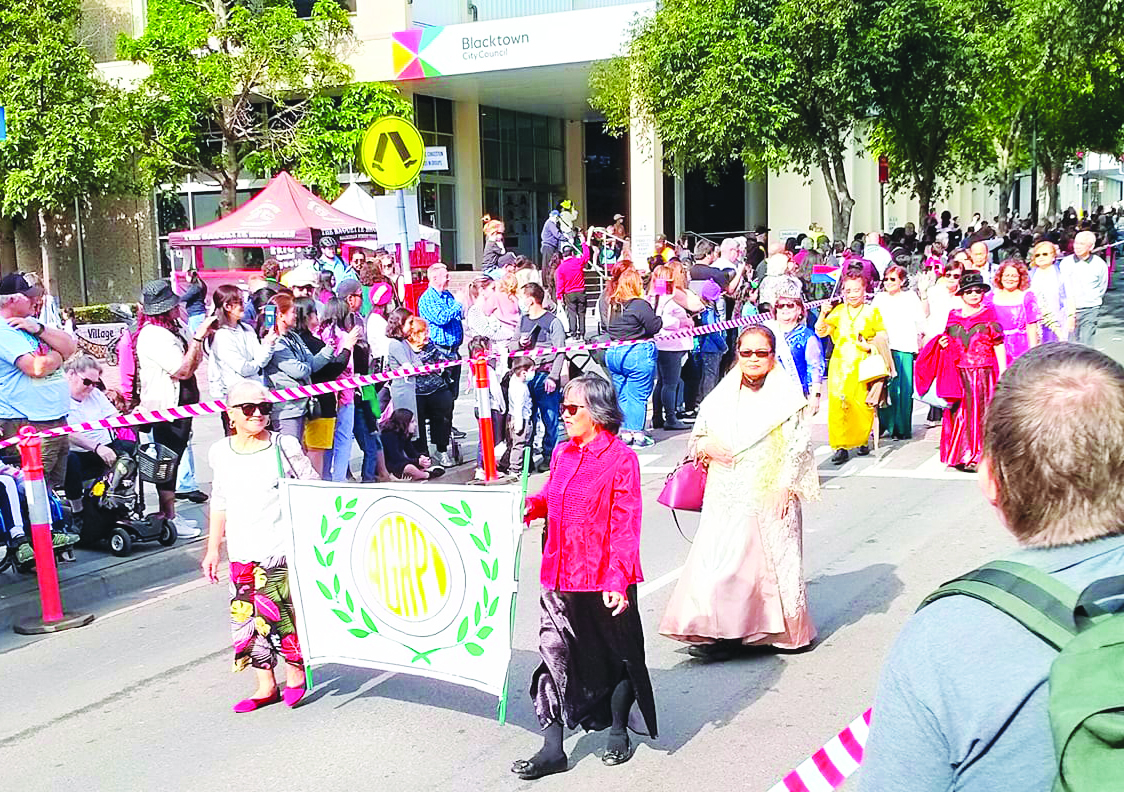 Speech by Senator Michaela Cash, Assistant Minister for Immigration and Border Protection during the Migration Institute of Australia’s Western Australia Conference 8 August 2014
Speech by Senator Michaela Cash, Assistant Minister for Immigration and Border Protection during the Migration Institute of Australia’s Western Australia Conference 8 August 2014
In opening your state conference today, I would like to continue this theme by discussing the progress the government has made in managing and improving the national asset which is our migration programme.
Australia is a destination of choice for people visiting and migrating from all over the world.
Based on planning levels, it’s likely around 190,000 migrants will have become an enduring part of this great nation in 2013-14.
In addition, millions of visitors and temporary residents will have entered Australia last year: some like those on a tourist or working holiday visa, who will stay for only short periods, whilst others like international students and temporary workers, who are likely to stay for longer.
Some of this latter group will undoubtedly become permanent residents and citizens in future years.
In the coming year I am sure most, if not all of you will have some professional contact with these different types of migrants and visitors.
A professional, well informed and competitive migration advice sector can deliver benefits – not only to agents and their businesses – but also to the government, the regulator and most importantly to the client.
The government wants to deliver a migration programme with integrity and efficiency that meets the needs of Australia’s economy and society.
The government wants to reduce unnecessary regulatory and administrative burdens to achieve the best outcome at the least cost for clients and effectively regulate the migration advice sector to protect consumers.
Achieving that aim will require hard work and commitment.
There needs to be a willingness to work cooperatively with both the government and the regulator.
The best outcomes will only be achieved if each stakeholder plays their part in contributing to a well regulated, professional and efficient migration advice sector that delivers high quality service to clients.
The Prime Minister has asked his ministers to do what they can to reduce the regulatory burden for businesses, community organisations and individuals in their dealings with government to boost productivity.
One of my top priorities is to look for opportunities to reduce the regulatory burden across the migration programme, whether it relates to policies that govern who can apply for a visa, or to ensuring that application processes are as clear and streamlined as possible.
Review of the Office of the Migration Agents Registration Authority
To this end, you will undoubtedly be aware that on 24 June I announced an independent review of the Office of the Migration Agents Registration Authority (MARA) to be conducted by Dr Christopher Kendall.
The review will focus on the organisational capability and challenges facing the regulator, as well as the quality and effectiveness of the MARA’s internal controls and governance.
I have also asked Dr Kendall to examine the regulatory framework and powers of the MARA to determine if they are still appropriate, and to identify opportunities to reduce regulatory burden.
The government recognises the importance of an effective regulatory framework and that the Migration Agents Registration Authority has the powers to enforce that framework.
As such, it is an ideal opportunity for the sector to voice their thoughts on the regulatory scheme and the Regulator.
The terms of reference were published on the department’s website together with the call for submissions, which closed on 27 July 2014.
I look forward to receiving Dr Kendall’s report in September this year.
Significant Investor Visa review
I would also like to briefly mention another key component of the Migration Programme, the Significant Investor visa.
The government is very aware of the potential benefits to Australia arising from an efficient and effective investment visa programme. This visa subclass has the potential to deliver valuable flows of investment and attract entrepreneurs and investors of the highest calibre to Australia.
We have already seen significant benefits flowing from this visa.
As at 31 July 2014 more than $1.7 billion had been invested in Australia by 343 primary applicants, and there are another 602 applicants, or just over $3 billion of investments, in the pipeline.
These are very significant sums, and the government is committed to looking at all options to enhance the significant investor visa programme.
To this end and in line with our commitment to facilitating business and reducing red tape, we announced a review of the significant investor visa programme on 7 March this year.
The department is conducting the review in close consultation with the financial services industry and key stakeholders.
Their remit is to examine all options with the aim of re-invigorating and enhancing the implementation of the programme.
Areas for review include programme implementation, ways to increase processing efficiency, the current policy settings and ways of increasing the flexibility and investment choices for significant investor visa applicants while ensuring the continued integrity of the programme.
In relation to this last point I would like to emphasise that a central purpose for the review has been to consider innovative, workable solutions that will improve and enhance the programme to the benefit of investors and Australia.
The government is also very interested in extending the reach of the programme.
Currently, just over 90 per cent of all investors are from China.
This is an excellent outcome so far, but the government would like to generate similar levels of interest in a broader range of countries.
The government is considering the outcome of the review.
The Business Innovation and Investment Programme is also the subject of an inquiry separate from the Significant Investor Visa.
The Joint Standing Committee on Migration has been accepting submissions and holding hearings since March 2014.
This inquiry’s focus is on the programme’s eligibility criteria and whether it is meeting its objectives, and also looking into the decline in application rates.
I look forward to reading the joint standing committee’s recommendations in due course.
457 integrity review
The 457 programme is another key programme that supports the economy through the entry of globally skilled persons to address shortages in the local labour market and I am pleased to report that the 457 programme continues to make a valuable contribution to Australia’s economy and society.
As at the end of May 2014, there had been 47,650 primary visas granted and, at that same time, there were there were 108,535 primary visa holders in Australia[1].
In line with the softening economy, the growth of the subclass 457 programme had slowed considerably.
While this will likely lead to a decrease in 457 visa holders in Australia in the coming months and years, we must keep in mind that the 457 programme is demand driven and continuous growth is neither possible nor desirable.
Many of these workers, like many of the Institute’s members, work for small businesses.
Those of you who have hired a migrant through the skilled migration programme will undoubtedly know that the programme not only helps employers and businesses fill short to medium-term skill shortages, but also creates Australian jobs.
I would like to emphasise the fact that the 457 programme exists to allow employers to fill skilled positions where they cannot find an Australian worker.
Australian workers should have priority wherever possible. Support for this concept from those involved in the migration industry in both words and deed is vital to public support of the 457 programme and the skilled migration programme in general.
You would be aware an independent review of the integrity of the subclass 457 programme was undertaken recently.
The panel provided me with their final report, called Robust New Foundations, at the end of June.
I understand the panel met with more than 150 stakeholder groups across the country including with representatives from the MIA in early May.
The panel also invited public submissions and received nearly 200 responses from a variety of stakeholders, including a very comprehensive submission from the MIA.
It is clear from reading the report that the recommendations are formed as a result of these extensive consultations.
I would again like to publicly thank the panel for providing me with their considered views of the 457 programme.
It was very interesting to read the panel’s recommendations and the reasoning and evidence put forward to support them.
Minister Morrison and I are now considering the 22 recommendations put forward to create, and I quote the subtitle of the report, ‘a streamlined, transparent and responsive system for the 457 programme’.
I would like to let you know today that I will soon be releasing the report and we will begin implementing a number of changes to the subclass 457 programme almost immediately.
Over the coming year the government will make the programme easier for employers and prospective visa applicants to access, whilst maintaining effective protections for Australian jobs.
I can promise you that the government will cut the red tape from the programme, so businesses can innovate, get on with doing what they do best, and play their part in building a strong and prosperous economy for a safe and secure Australia.
In this regard I also advise that in relation to Labor Agreements, there are approximately 190 labour agreements in effect.
This is a 12 per cent increase on the number of agreements in effect at this time last year. A further 40 labour agreement requests are currently under consideration by my department.
Today, I would also like to announce that I have made a decision not to index the Temporary Skilled Migration Income Threshold (TSMIT) this year which, I am sure, will be good news for those of you representing employers who are seeking workers with market salaries very close to this threshold.
This is yet another example of this government taking action to reduce the impost of regulation that doesn’t provide benefits to business, the community or families.
As I said earlier, the government’s role is to create the conditions for business to prosper by supporting growth and removing unnecessary regulation.
Nowhere is this more true than for the tens of thousands of small businesses using the 457 programme to fill temporary shortfalls in their skilled work force.
We need effective processes, the right policies and integrity for our programmes.
My goal is to ensure that migration delivers social and economic strength, prosperity and unity and continues to contribute to a thriving and cohesive economy.
I appreciate your contribution to the success of Australia’s migration programme and encourage you to strive for and to maintain the highest standards of professionalism, both as individuals and as part of the broader migration advice sector.
I hereby declare the 2014 Western Australia branch of the Migration Institute of Australia’s annual conference open.
Thank you.









Leave a Reply